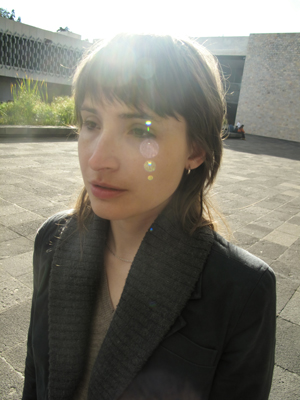
Bio
Rose Bolton is one of Canada’s most innovative and multi-faceted composers. Nominated for a Juno in 2020: Classical Composition of the Year, she has composed 13 full-length documentary film scores for CBC’s Doc Zone, TVO, and Logo TV (US) and festivals worldwide. In 2018 she composed music for Anthropocene: The Human Epoch, which premiered at TIFF, and her score was nominated for best musical score in the 2019 Cinema Eye Honors (New York).
She has long focused on creating electronic and instrumental music for innovative multimedia projects for festivals and events including Montreal’s AKOUSMA and Toronto’s Nuit Blanche, Luminato, X Avant festival. This includes Song of Extinction, a feature length multimedia work, premiered with Music in the Barns at the cavernous Hearn Generating Station. In association with Luminato, Song of Extinction was a massive undertaking, merging film by Marc de Guerre with a score for live electronics, ensemble (Music in the Barns), and choirs (Tafelmusik Chamber Choir and Viva! Youth Chorus of Toronto), with poetry by Griffin poetry prize winner, Don McKay.
Her recent electronic solo release, The Lost Clock on Important Records: Cassauna, has generated glowing reviews from The Quietus, Wire and other indie experimental publications throughout North and South America, Europe and South Africa.
Her concert music has also been featured on concerts by leading Canadian orchestras and ensembles such as the Vancouver Symphony, Esprit Orchestra, Continuum, the Kitchener Waterloo Symphony, percussionist David Schotzko, Arraymusic, guitar quartet Instruments of Happiness (led by Tim Brady), Ensemble Paramirabo, Collectif9, and revered pianist Eve Egoyan.
In 2022 she will be once again working with long-time collaborators Music in the Barns on a new portrait album of her compositions for chamber ensemble. This new project will build on the success of MITB’s first album, (released on New Focus Records) which was met with critical acclaim and resulted in a JUNO nomination for best classical composition of the year (2020) for The Coming of Sobs.
As a performer, she variously employs electronics, violin, and viola. Parallel to her engagement with exploratory approaches, she’s invested in the fiddle traditions of the British Isles, and various Canadian regions. She teaches this repertoire at the Royal Conservatory of Music.
PRESS
“[I]ts three movements are quite energetic, even excited, with the violins sweeping past like whirling shoal of fish as the cello provides a steady drone, like a massive field of seaweed swaying back and forth.” — PHIL FREEMAN, THE WIRE on The Coming of Sobs
“Transported by Toronto’s Rose Bolton opens like an ancient dithyramb undulating with gestures that pulled kindred spirits in from the cold, to dance among the oboes. Like a Houdini séance, we crossed over. Sprightly gestures in the harp led to the strings; soft brass ushered in Penderecki-like tonal clusters. The balance between the pre-recorded material and the live orchestra seemed effortless, which is no small feat.” — MICHAEL VINCENT, TORONTO STAR
“But perhaps the most impressive craft contribution is Rose Bolton and Norah Lorway’s minimalist and electronic score, which not only manages to add an disquieting, almost creepy undertone to even the most beautiful shots and which, because it is so clearly electronic, keeps emphasizing the human or man-made element.” — BOYD VAN HOEIJ, THE HOLLYWOOD REPORTER on Anthropocene: The Human Epoch
“Bolton’s extensive experience as a composer of scores for documentary films has clearly honed her ability to translate into sound scenarios and unfolding stories from the realm of the imaginary as well as the actual as witnessed” — JULIAN COWLEY, THE WIRE on The Lost Clock
“As “Unsettled Souls” begins to cascade, its steely melodies rattle something loose within me. Trute to its title, Bolton’s work is mysterious and uneasy, creating tension with slow-moving sounds and eerie production. It creeps, it lurks, it shifts.” — JUSTIN SPICER, CEREBUS on The Lost Clock